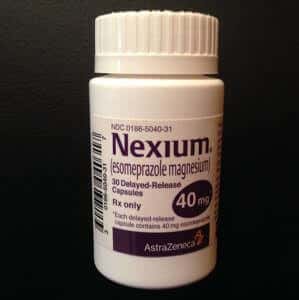
Is it smart to block the production of stomach acid with powerful proton pump inhibitor drugs (PPIs)? Millions of people take these drugs to control acid reflux, ulcers or gastroesophageal reflux disease (GERD).
PPIs and Intestinal Infections:
Researchers in Scotland have found that acid-suppressing medications such as dexlansoprazole (Dexilant), esomeprazole (Nexium), lansoprazole (Prevacid) or omeprazole (Prilosec) make people more vulnerable to gastrointestinal infections. They reviewed the records of half a million Scots. Those taking PPIs were 1.5 times more likely to come down with Clostridium difficile than those not on such drugs. C. difficile can cause hard-to-treat diarrhea. This is not the first study to find that such drugs increase the risk of C diff infections (JAMA Internal Medicine, May 2015).
Scottish people taking prescription PPIs were also about four times more likely to pick up a Campylobacter infection. Intuitively, this makes sense. Stomach acid is one way that organisms protect themselves against invading germs.
The investigators warn that these powerful drugs should not be used casually. Patients and their health care providers should discuss when the drugs are appropriate and when and how to discontinue them.
British Journal of Clinical Pharmacology, online Jan. 5, 2017
Stopping a PPI suddenly can trigger rebound heartburn symptoms that can be hard to manage. Using non-drug approaches to help ease the pain while reducing the dose gradually might work best. We offer several recommendations in our Guide to Digestive Disorders.
6/20/19 redirected to: https://www.peoplespharmacy.com/articles/getting-off-omeprazole-old/

